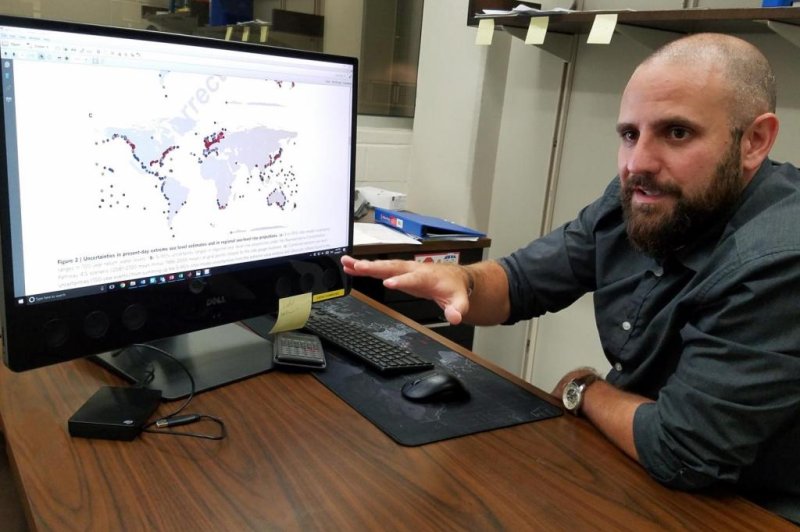Thomas Wahl, an assistant professor of engineering at the University of Central Florida, demonstrates new modeling technique that can more accurately predict extreme sea levels. Photo by Kimberly Lewis/UCF
July 7 (UPI) -- Researchers at the University of Central Florida are using newly available data and advanced modeling techniques to improve predictions of extreme sea levels.
The study, published July 7 in Nature Communications, suggests extreme sea levels will occur more frequently than previously predicted in the west coast regions of the United States and in large portions of Australia and Europe.
Extreme sea levels are caused by a combination of high tides, storm surges and waves.
"Storm surges globally lead to considerable loss of life and billions of dollars of damages each year, and yet we still have a limited understanding of the likelihood and associated uncertainties of these extreme events both today and in the future," said Thomas Wahl, an assistant engineering professor in the University of Central Florida, said in a press release.
Rising sea levels combined with extreme weather events mean more damage can be done even with a less intense storm, such as a Category 1 hurricane.
The study found that because of rising sea levels, extreme events are predicted to happen every decade, or year, by 2050 compared to the previous average of once every hundred years.
Researchers used a sample of 20 different methods for predicting extreme sea levels to focus on the measures of uncertainty that go along with any prediction.
"Based on our results we can see, for the first time globally, what role uncertainties in extreme sea level predictions play," said Ivan Haigh, an associate professor at the University of Southampton in England. "It helps identify hotspots where we can focus on in more detail, performing localized studies to reduce the uncertainties and improve our confidence in the results."
According to researchers, including extreme sea levels in coastal impact studies is vital to helping vulnerable parts of the world to protect themselves by adapting through new or upgraded infrastructure.















